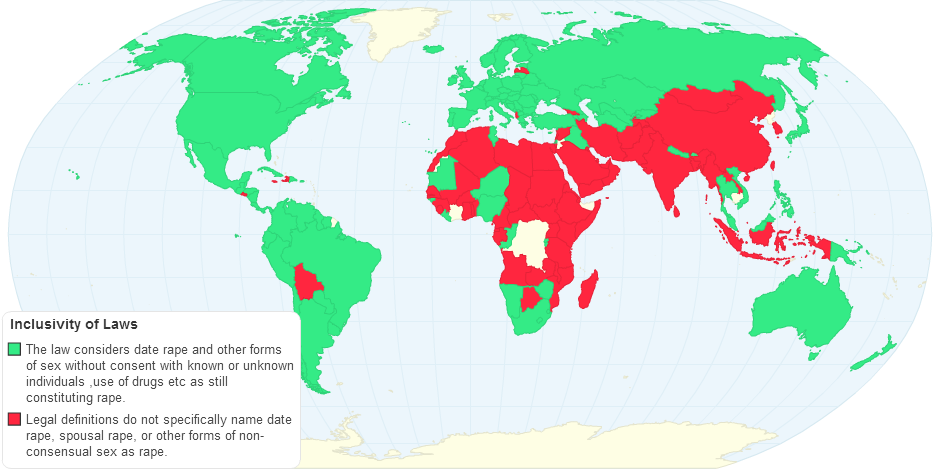This chart shows Inclusivity of Laws Concerning Rape.
Rape is a type of sexual assault usually involving sexual intercourse or other forms of sexual penetration perpetrated against a person without that person's consent. The act may be carried out by physical force, coercion, abuse of authority or against a person who is incapable of giving valid consent, such as one who is unconscious, incapacitated, has an intellectual disability or below the legal age of consent.
Punishment for rape in most countries today is imprisonment. Castration is sometimes a punishment for rape and, controversially, some U.S. jurisdictions allow shorter sentences for sex criminals who agree to voluntary chemical castration.
Certain cultures have historically promoted a system of honor, dishonor and shame, which was applied with particular strictness to females. A victim of rape would be considered to have lost her honorable reputation and place in society, a loss of honor which entailed shame on the woman's family group as well.
Severe and certain punishment in a time bound manner, of the rapists has some deterrent value. Arrest alone may not constitute a strong societal response. Lengthy prison sentences have some behavior-altering deterrent values. Many well-known jurists and public men have advocated capital punishment for the criminals who commit rape as it is an offence worse than murder so far as its impact is concerned.
10 years ago

